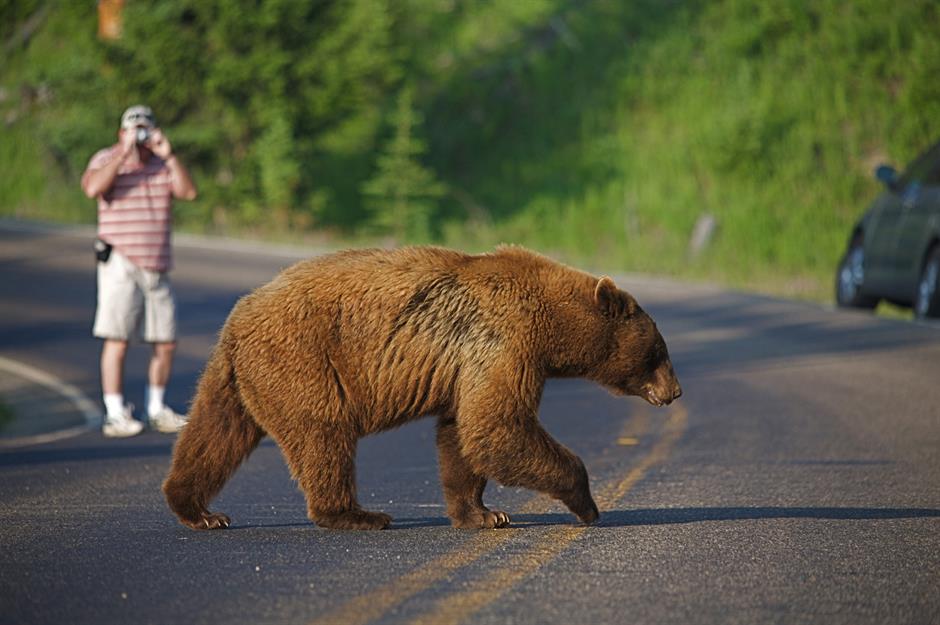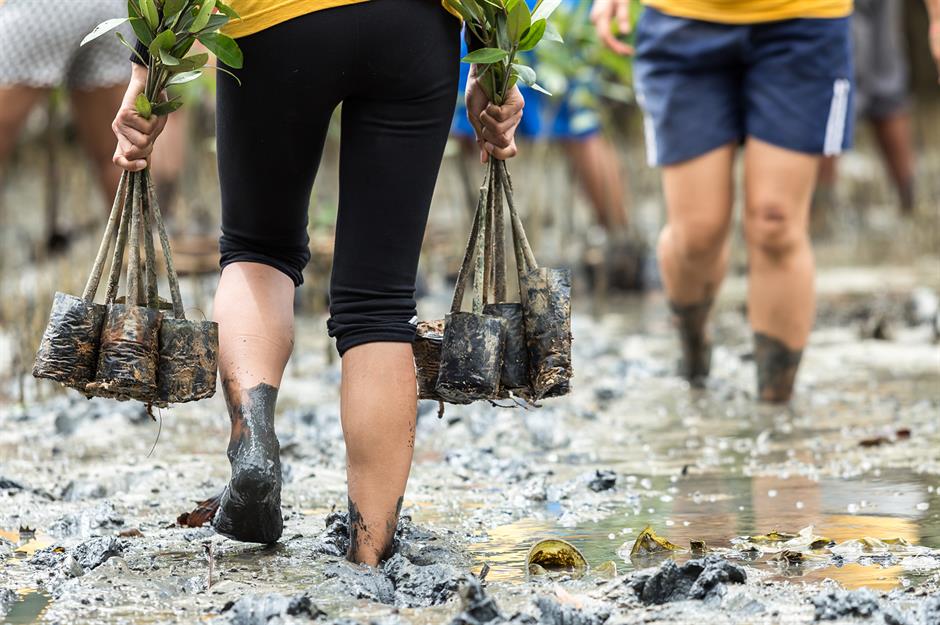The popular travel experiences that need to stop right now
Travelling responsibly
Voluntourism
Voluntourism
If you’re keen to help in a particular area, your cash may well be better spent by donating to a not-for-profit running a targeted project. If you choose to volunteer yourself, do your homework, seek out a reputable organisation and be honest about what you can offer. Responsible Travel has a great guide to volunteering abroad, and includes details of specific ethical trips.
Day visits to schools
Day visits to schools
For the most part, a single visit is likely to make little impact in the long run, and may also cause unnecessary disruption to the children’s day of learning – particularly when it’s a regular occurrence. If you’ve got the skills to teach abroad, check out Responsible Travel’s guide to picking a credible programme.
Careless tours of the Great Barrier Reef
Careless tours of the Great Barrier Reef
Tourism on the reef often helps fund critical research into its conservation, so there’s no need to boycott it altogether. But it’s vital you act responsibly and choose your tour carefully – the Great Barrier Reef Marine Park authority has a comprehensive list of reputable operators. Once you’re back on land, avoid purchasing memorabilia made from coral, too.
Wild camping
Sleeping under the stars in a tent far from civilisation may seem an idyllic pursuit – but be mindful. While many campers respect their surroundings, there are, of course, those who don’t, spoiling it for the rest. Different places, have different rules on wild camping: in some destinations, it’s prohibited altogether, and in those spots where it’s legal, some concerned locals are calling for a ban. In 2017, camping in Scotland's Trossachs National Park was restricted due to careless behaviour.
Wild camping
Always do thorough research before you pitch up – and should you be at all unsure about the spot you’ve chosen, move on or opt for a registered campsite. Be sure to heed guidelines such as the Scottish Outdoor Access Code and leave no trace after your visit: take litter away with you, avoid disturbing local wildlife, and be cautious when lighting fires.
Risking your life for a photo opportunity
Risking your life for a photo opportunity
There are numerous reports, too, of tourists falling from mountaintops and other overlooks in pursuit of impressive selfies. Several such incidents have occurred in Croatia’s Plitvice Lakes National Park over the past few years, while a man plummeted to his death in the summer of 2016 when taking photos of himself in a restricted area of Machu Picchu.
Drinking to excess
Drinking to excess
Taking photos without permission
Taking photos without permission
Tourism Concern says: “Ethical photography is about being considerate in attitude and approach, rather than being voyeuristic, thoughtless or selfish.” Strike up conversation first, always ask permission before you snap – especially when photographing children – and be sensitive about how you use the images afterwards.
Riding elephants
Elephants are arguably the most awe-inspiring and majestic of land animals and interacting with them is at the top of many people's holiday wishlists. This means elephant trekking, rides and shows have become big business in some countries. Aside from the dubious ethics of keeping these highly-intelligent animals captive, not all operators treat them well. Baby elephants will often be beaten and treated cruelly to train them to submit to letting people ride them.
Riding elephants
According to a report by World Animal Protection, more than three-quarters of the nearly 3,000 elephants used for tourist entertainment in Asia are kept in severely cruel conditions. Sadly, Thailand was one of the worst offenders. Not only is elephant riding bad for the animals’ welfare but in terms of the bigger picture it can encourage poachers to steal calves and continues to perpetuate the mighty beasts' exploitation. This in-depth Rough Guides article explains more.
Riding elephants
Thankfully many responsible tour operators like Intrepid and Explore have removed elephant rides from their itineraries. There are plenty of alternative ways to have rewarding interactions with elephants, such as visiting sanctuaries and rehabilitation centres where you can observe them and learn about conservation issues.
Watching turtles nest and hatch
Watching turtles nest and hatch
To make sure you're contributing in a positive way, go with a professional guide who's keen to teach you about these endangered animals and how best to observe them. If the mothers are laying eggs, avoid torches and flash photography. Always keep your distance and never touch a turtle or an egg. During hatching season, look out for hatchlings on the move and let them walk down the beach by themselves. As tempting as it is to help a fledgling turtle on its treacherous journey to the seashore, resist the urge and let nature take its course.
Watching dolphin performances
These gorgeous creatures are intelligent and social, and a joy to see up close. But due to their high-level intelligence, keeping them captive in small tanks is incredibly cruel, and many countries have now made it illegal. Support responsible practices by avoiding marine parks and aquariums that have captive dolphins. Only by shunning places that keep these incredible animals in captivity (even in the name of conservation and education) and train them to perform tricks and stunts for tourists will this practice end.
Swimming with dolphins
One of the most popular wildlife encounters is swimming with dolphins, but careful consideration should be given before you leap in the water looking for dolphins to frolic with. Being surrounded by people can be incredibly stressful to dolphins (not to mention dangerous for you), so be sure to go with an ethical tour operator that treats them with respect and ensures both the dolphins' and your safety. Responsible Travel have some excellent advice here.
Swimming with dolphins
Selfies with tigers
These stunning beasts are powerful animals not to be messed with, yet still today you'll find some attractions in Asia offering photo opportunities with tigers. According to the RSPCA, if tigers will pose for selfies it’s usually because they have been sedated with drugs to make them easier to handle, and tiger cubs will have been cruelly separated from their mothers and mistreated.
Lion cub petting
Lions are majestic, and their cubs are indeed cute, but alarm bells should sound if you’re offered the chance to cuddle, pet or bottle feed one. Growing concern about the breeding and treatment of lions in captivity has sparked some public backlash towards the practice but sadly it's still common. Petting is detrimental to cubs as they won't learn how to survive in the wild and many lions bred in captivity end up in “canned hunting”, a disturbing practice where people pay to shoot lions in a relatively confined area.
Lion cub petting
For a more fulfilling and responsible encounter with the graceful big cats go on a safari to observe them in the wild or visit a sanctuary that truly cares for orphaned lions. You could even volunteer at a lion sanctuary in South Africa, where rescued lions who cannot be rehabilitated are cared for.
Disrespecting sacred places and local customs
Disrespecting sacred places and local customs
Disrespecting sacred places and local customs
Tribal tourism
Meeting indigenous communities can be a thoroughly informative and enriching experience for both parties. After all, experiencing cultures different to ours is one of the reasons we travel. But it's important to proceed responsibly and sensitively, and ensure you're not exploiting people just for a photo. It's important to always ask permission to take photographs and interact a little before snapping away. You'll often be asked to pay for the privilege, but be sure your money is going to the right people (those in your pictures).
Tribal tourism
All too often villagers don't get any sustainable benefit from tourists’ visits – so be sure to do some investigating to ensure your money is going to the people who need it the most. When it's done right, visiting tribal communities can be a rewarding experience for everyone, with visitors gaining a unique insight into local people and their traditions and the villagers earning some money while helping to teach people about and protect their culture. For more insight, seek advice from Tourism Concern.
Slum tours
While it's important to understand the social landscape when you're travelling in a new place, taking the so-called “slum tours” in places like Brazil or India can lean towards uncomfortable voyeurism. According to Tourism Concern, "it is difficult for tourists to know which tours are supported by the communities and will bring real benefits and which are just marketing hype and exploitative." If you do decide to visit the slums of India, a favela in Rio or a township in South Africa, for example, be sure you’re there with permission from community representatives. Go with local guides who know the area, don't seek to reinforce negative stereotypes and who will ensure your safety. Also check that any profits go to local initiatives or charities.
Slum tours
Shark cage diving
Shark cage diving
Enticing sharks with bait may well have a long-term impact on the predators’ behaviour – after all feeding any wild animal can disturb the natural balance. Its fiercest critics think it’s not only irresponsible but dangerous – causing sharks to associate humans with food and blaming it for an increase in shark attacks.
Shark cage diving
However, if dangling in a cage in shark-infested waters is top of your bucket list then choose an operator that offers educational dives and doesn’t chum. Responbsible Travel say: "If the diving is done sensitively, in small numbers and with minimal obtrusion to the marine environment, diving with this misunderstood predator can be a breathtaking experience."
Stealing from nature
Watching performing animals
They might look cute, funny or fascinating, but forcing animals to perform for entertainment is disrespectful. Whether it’s snake charmers in Morocco or dancing macaques in Thailand, try to avoid stopping to see the spectacle and definitely don't give money. According to the Animal Welfare Institute, thousands of animals are removed from the wild each year for this purpose, and "in too many instances, an individual’s entire family is killed in order to obtain one juvenile."

